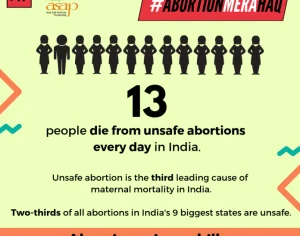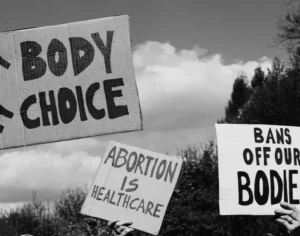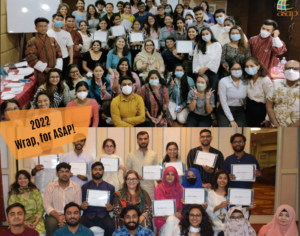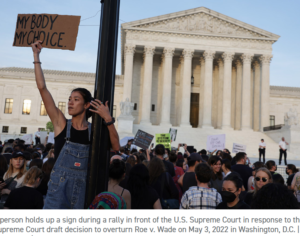The way PCPNDT ACT is being implemented currently deters medical practitioners from performing abortions and is consequently forcing women towards illegal and unsafe abortions.
Preet Manjusha, ASAP Youth Champion, carried out an exploratory study through her organization Samyak, to document the knowledge and perspectives of private practitioners regarding abortion-related laws. The study also explored practitioners’ interactions and experiences with the PCPNDT (Pre-Conception and Pre-Natal Diagnostic Techniques) regulatory authorities and those responsible for its implementation.
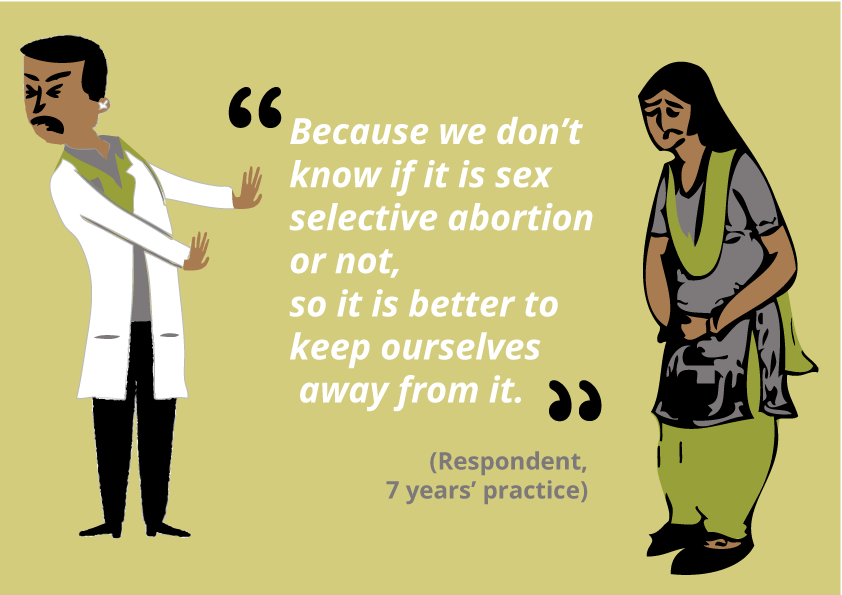
Respondents shared that rather than targeting sex determination, many inspection-visits targeted abortion services. As a result, private medical practitioners face negative media publicity, defamation and criminal charges. On account of this, practitioners admitted to turning women away not only in the second trimester but also in the first.
“It does not make any difference to my practice if I say no to provide an abortion, but it makes a great difference to my practice if I do an abortion and it turns out to be a female fetus. PCPNDT machinery wants us to report every single abortion and its result. So I asked the family to get a permission letter from Taluka (Block) Medical Officer, which he refused to provide, so I denied abortion service to this woman.” (Respondent)
“Though I am authorized to do MTP up to 20 weeks in our hospital, still we are not doing abortions after 10 weeks. We make sure that women do not abort at our hospital in the second trimester. Because we don’t know if it is sex selective abortion or not, so it is better to keep ourselves away from it.” (Respondent, 7 years’ practice)
“They (Government authorities) asked us for double the money because we changed the position of our machine. We had given them 10,000 rupees two times. Generally they come with constables, police inspectors and other government members. They treat private medical practitioners like criminals.” (Respondent, 27 years’ practice)
“Committee visits are frightening. They come with a team, sometimes with media people. In these visits, if they find any error then it will become headline news for the press. It can impact our practice.” (Respondent, 25 years’ practice)
“Government people troubled us for various reasons. They even said ‘You are lying; you must be doing sex selection.’ This is very disturbing for us. That’s why I stopped doing MTPs in the second trimester.” (Respondent, 20 years’ practice)
The study revealed that as a fallout of the way the PCPNDT Act is being implemented at present, safe abortion services have become either difficult for women to access or been outright denied to them. Given that unsafe abortion continues to be among the top five causes of maternal mortality in India, it is imperative to eliminate all barriers to accessing abortion services. There is therefore an urgent need to recognize the impact of the current regulatory environment, which is forcing women towards illegal and unsafe abortions.
Read the full article here


